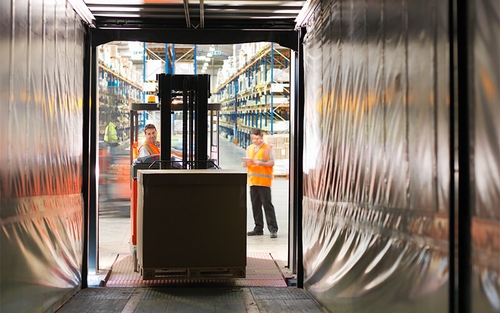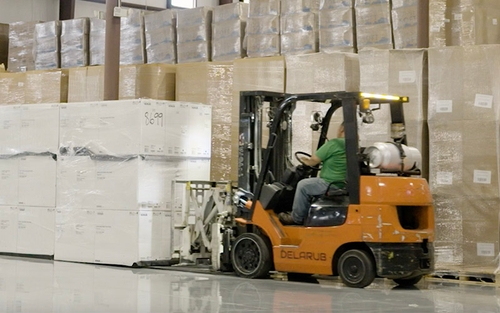Estimated reading time: 2 minutes
Warehouses are the backbone of the supply chain. They ensure goods move efficiently from manufacturers to consumers. Warehouse clerks play a crucial role in this process, handling various tasks that keep operations running smoothly.
Discover what a warehouse clerk is, along with four of its common job responsibilities, to see if it’s a role you are interested in pursuing.
Warehouse clerk job description
A warehouse clerk oversees certain functions in a warehouse to ensure everything operates in an orderly fashion. They work closely with other warehouse team members to ensure goods are received, stored and shipped correctly.
Warehouse clerks are typically responsible for:
- Managing inventory.
- Processing shipments.
- Billing and invoicing.
- Maintaining records.
The job requires:
- A good eye for detail.
- Strong organizational skills.
- The ability to work well under pressure.
Most employers require warehouse clerks to have a high school diploma or equivalent.
4 warehouse clerk job duties
1. Inventory management.
One of the main warehouse clerk job responsibilities is to keep track of freight that is shipped in and out of the warehouse. They do this by:
- Coordinating and assigning containers to warehouse associates.
- Tracking inbound and outbound orders.
- Contacting drivers for freight pick-up.
- Ensuring cargo is routed appropriately.
2. Quality control.
Some warehouse clerks are responsible for conducting detailed inspections when freight enters the warehouse. They are the first to receive inventory, making sure everything is accounted for within the shipment.
Other aspects of quality control can include:
- Ensuring orders are filled and picked properly.
- Applying labels to freight.
- Wrapping pallets.
3. Billing and invoicing.
In addition to managing freight and performing quality inspections, warehouse clerks are often tasked with billing and invoicing responsibilities. This can include:
- Processing driver transactions.
- Logging orders.
- Receiving invoices.
- Billing inbound and outbound loads.
4. Record keeping.
Maintaining accurate records is an important part of a warehouse clerk's job. It ensures that the warehouse operates smoothly and any problems can be quickly identified and resolved.
Some record-keeping tasks a warehouse clerk may complete include:
- Processing reports.
- Documenting any issues that arise.
- Entering data into multiple systems.
- Pulling data from multiple systems.






